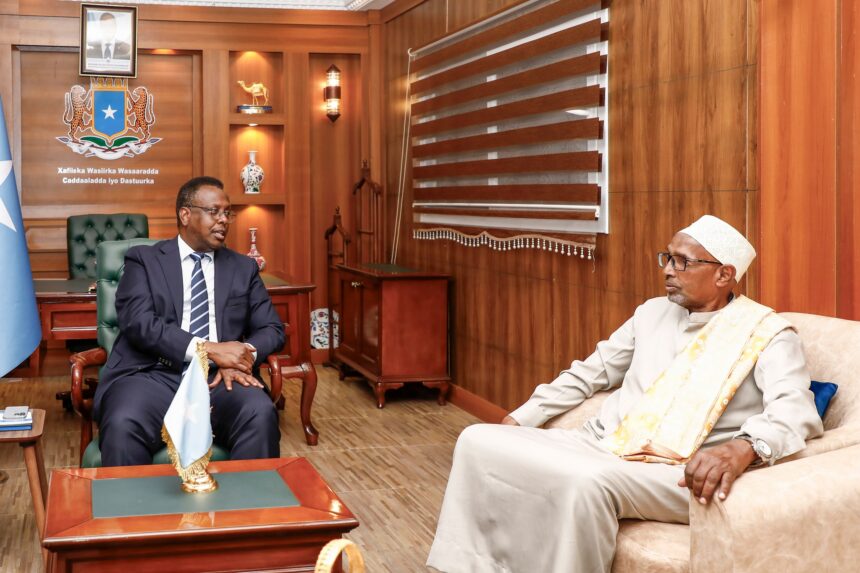Mogadishu, Somalia – A crucial meeting has taken place in Mogadishu between the Federal Minister of Justice and Constitutional Affairs of Somalia, His Excellency Hassan Moalim Mohamud, and the Chairman of the Somali Religious Scholars Association, Sheikh Yusuf Ali Aynte. The high-level dialogue focused on bolstering collaborative efforts between the Ministry and the esteemed Religious Scholars Association, particularly in the vital areas of justice, public awareness, and the rigorous combat against the radical ideologies propagated by the Khawaarij.
The engagement signifies a strategic convergence of governmental authority and religious scholarship in Somalia’s ongoing struggle against the pervasive influence of the Khawaarij. Both parties recognized the paramount importance of a unified front to dismantle the intellectual and ideological foundations of the group, which often preys on misconceptions and societal vulnerabilities. Minister Mohamud highlighted the critical role that religious leaders play in shaping public opinion and guiding communities away from extremist narratives that distort the true tenets of Islam.
Sheikh Yusuf Ali Aynte, representing the collective wisdom of Somali scholars, reaffirmed the Association’s commitment to supporting the government’s initiatives aimed at promoting peace, justice, and national cohesion. He emphasized the necessity of a comprehensive approach that includes robust public awareness campaigns to inoculate communities against the divisive rhetoric of the Khawaarij. The scholars are poised to utilize their influence and platforms to disseminate counter-narratives that emphasize tolerance, moderation, and the sanctity of life as enshrined in Islamic principles.
Discussions during the meeting also explored practical mechanisms for cooperation, such as joint programs for community engagement, educational initiatives, and the development of theological responses to Khawaarij propaganda. The Ministry of Justice views the Religious Scholars Association as an indispensable partner in fostering a society that rejects violent extremism and embraces constructive dialogue and nation-building. This collaborative model is seen as essential for not only addressing immediate threats but also for cultivating a resilient social fabric capable of resisting future ideological infiltrations.
This partnership marks a significant step in Somalia’s multi-pronged strategy to achieve lasting stability. By combining legal frameworks with religious guidance, the government and the Religious Scholars Association aim to effectively neutralize the ideological appeal of the Khawaarij, thereby strengthening national security and fostering a more informed and unified populace. The commitment articulated in this meeting promises a more coordinated and impactful campaign against the ideological roots of conflict in Somalia.





